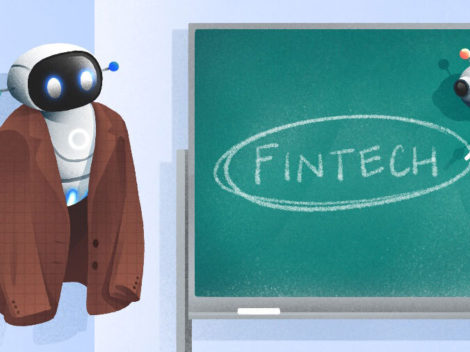The last-mile delivery space keeps evolving.
Consumers are demanding to know how long it takes to receive merchandise, food, and groceries.
Online retail giant Amazon is at least partially to blame for raising consumers’ expectations since it launched its Prime (two-day) service in 2005. To compete, many larger retailers have entered the last-mile delivery business either by partnering with smaller startups or launching their own delivery services.
Follow Crunchbase News on Twitter & Facebook
Amazon’s purchase of Austin-based Whole Foods gave it a new way to compete in the grocery delivery space. Most recently, retail giant Walmart announced partnerships with PostMates and DoorDash to deliver groceries in new markets including Charlotte, N.C. and Atlanta, Ga., with plans to expand to additional markets in the near future. According to Crunchbase, Target acquired Shipt for $550 million last December to offer its customers delivery services as well.
San Francisco-based Postmates has raised a total of $278 million since it was founded in 2011 and DoorDash a total of $721.7 million since 2013, including a massive $535 million capital infusion in March from a group of investors including SoftBank and Sequoia Capital. That transaction raised DoorDash’s valuation to $1.4 billion.
But not all last-mile delivery startups have seen as much success. For example, New York-based prepared food delivery startup Maple raised more than $25 million only to be acquired by UK-based food delivery company Deliveroo in May 2017. It has since ceased operations in New York—the only market it was in.
Courier Robots
Despite the challenges those in the space face, including increased competition and the ability to generate revenue beyond delivery fees, one San Francisco startup is eager to take last-mile delivery to another level by incorporating another very hot sector: AI.
Fresh off a $10 million Series A round of funding, Marble is creating a new generation of last-mile logistics company that enlists the help of intelligent courier robots. Marble has raised a total of $15 million since it was founded in 2015. The company plans to use its latest financing to continue development of its technology, expand to new geographies, and hire more staff.
Tencent, Lemnos Labs, Crunchfund, and Maven all participated in the latest round.
Marble was founded on the premise that while ecommerce sales continue to grow exponentially, innovation in last-mile logistics has remained “stagnant.”
Double-parked delivery trucks make up to ten percent of traffic congestion in some cities, often in the form of 30-minute deliveries of food, two-hour delivery windows for groceries, and Prime-style deliveries of packages within a few hours or days of an online purchase, according to Marble CEO Matt Delaney.
“The way that goods are delivered to your doorstep hasn’t changed,” he said. “But consumers’ expectations are narrowing, demand is tightening and urbanization is increasing. The methods we’ve been using the past 100 years – primarily a truck – are not enough anymore. We need a new tool, and new ways of doing things.”

Also, current methods and services are not accessible to the average person due to cost. Self-driving cars are still years away and drones are not currently realistic in urban environments. Marble aims to fill the gap with its robots.
“We believe that if you add automation to this you can get more scalable, sustainable, fully electric versions of these systems and ultimately drives down costs, which will make on-demand delivery more accessible,” Delaney said.
Marble’s staff has doubled over the past year and includes roboticists who have worked in labs at institutions such as Carnegie Mellon University Robotics Institute, Stanford University, and Oxford, and at companies such as Apple, SpaceX, and Amazon. The company is also working with advisors specializing in transportation and public policy in an attempt to work with elected officials and community groups on the social impact of delivery robots.

Over the past year, Marble has also been running customer trials in San Francisco to refine its technology. To provide a chaperone-deficient robot, Delaney’s goal is to advance Marble’s technology.
“The economics of robots are not really good if you have a person with every robot,” Delaney said. Marble has built its system to include remote support so that robots can fall back to a remote operator who can take control at any given time. It’s working to mature that technology so that one operator can control say, up to 10 robots. The company is also broadening its focus to the larger logistics, grocery and retail space.
To Delaney and Marble, the time is right to address the astronomical growth of e-commerce due to a convergence of factors.
“The cost of building this technology is more economical with the cost of sensors dropping considerably, and market demand is only growing,” Delaney said. “Everyone is trying to figure out how to provide the next level of convenience and service that customers are asking for.”
Lemnos was the first investor in Marble with Partner Eric Klein having seen the co-founders’ first prototype in their San Francisco apartment nearly three years ago. He said the firm was initially draw to the team, their “dream,” and the market they were going after.
“Since then, the logistics market has started to mature and applied robotics are really taking off. The economics, business model and technology are there for this to be real,” Klein told Crunchbase News. “For efficiencies to get better , I think it’s an inevitability that we will use robotic technology in the way we do last-mile logistics and we think Marble is going to disrupt or significantly augment in a number of different ways the environment that last-mile is going to happen in.”
Illustration Credit: Li Anne Dias

Stay up to date with recent funding rounds, acquisitions, and more with the Crunchbase Daily.


![Illustration of a man sitting on a huge pile o' money. [Dom Guzman]](https://news.crunchbase.com/wp-content/uploads/Giant_Funding-470x352.jpg)

![Illustration of a suitcase stuffed with money. Megafunds [Dom Guzman]](https://news.crunchbase.com/wp-content/uploads/Megafunds-470x352.jpg)
![Illustration of a guy watering plants with a blocked hose - Global [Dom Guzman]](https://news.crunchbase.com/wp-content/uploads/quarterly-global-3-300x168.jpg)
67.1K Followers